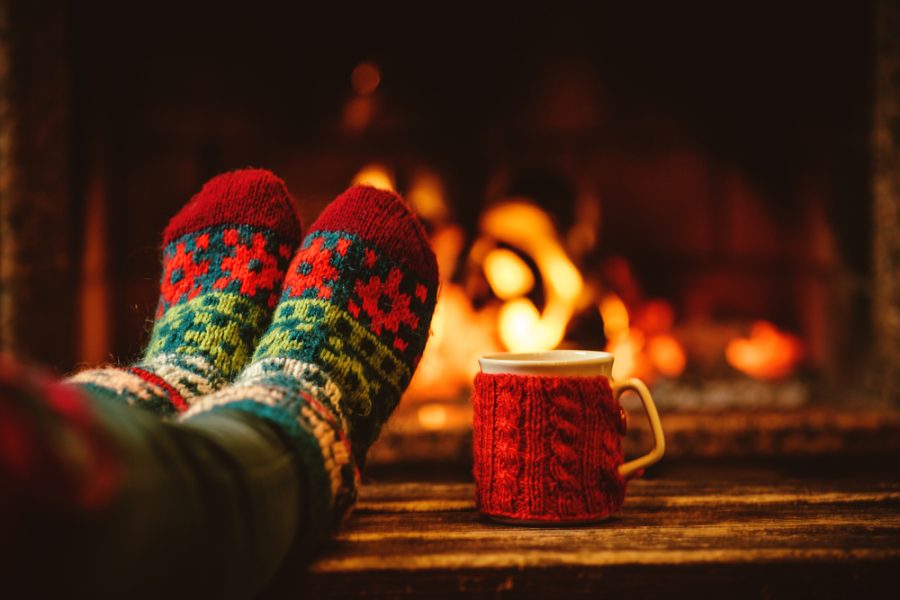
The holiday season is a wonderful opportunity to enjoy time together with family and friends. Unfortunately, they do also come with their fair share of stress, presenting a significant challenge for people in recovery. Between unrealistic expectations, financial strain, unhealthy eating, and busy schedules, you may feel more vulnerable to relapse. But, if you’re newly sober and scared of relapse, know that you don’t have to put your long-term recovery at risk. You can enjoy a sober holiday. Follow these practical tips to safeguard your sobriety and to keep you strong through the holidays into next year.
Table of Contents
1) Reduce and Plan for Stress
It’s common knowledge that the holidays bring along a good amount of stress each year. Yet, so many people still let it sneak up, forcing them to scramble to complete their tasks. This year, plan for the holidays early and get ready by:
- Setting your budget for travel, gifts, and other expenses
- Deciding what events you will attend
- Creating a list of who you will call, write to, meet, etc.
- Establishing meeting times, phone calls, and other forms of communication with your sponsor and support group
- Making time for yourself to rest
- Creating a holiday relapse prevention plan
2) Make a List of What You Love About the Holidays That Doesn’t Include Drugs or Alcohol

When you were a child, holidays probably had a magical feeling attached to them. Maybe you decorated trees, gathered with friends and gave gifts. Or perhaps you spent quality time with your family. As an adult, however, so many holidays revolve around the use of alcohol.
During this holiday season, don’t make parties that encourage drinking a priority. Try creating a holiday “joy list” instead. You can include anything from making decorations to enjoying the fire to ice skating.
3) Be of Service to Your Community
The holidays aren’t just a time to get together with family. They’re also an opportunity for growth, connecting with others, and giving back. If you’re in recovery, you may have had a support system helping you along the way. You can reciprocate this by giving back this holiday. For example, you can help your community by:
- Volunteering at a local homeless shelter
- Reaching out to newcomers in your support group
- Giving your time at a local school or senior center
- Participating in local events
There are many ways you can give back to the community. Look within yourself, and see how you can be of service.
4) Be Mindful of Your Attitudes and Actions
Holidays are a time many people let down their hair and free their inhibitions. But when you’re in relapse, you can’t necessarily partake in the same activities, especially if you’re hoping to have a sober holiday. It’s easy to make rationalizations during the holidays like “I guess I’m fine drinking in small amounts in social situations” or “I deserve a break for all the hard work I’ve done.” Don’t let these rationalizations take over.
Instead, reach out to your support network as soon as possible to stay accountable. A simple mistake is not a relapse, as long as you don’t keep it a secret.
5) Avoid Risky Situations
While you may have some supportive friends and family in your life, not everyone will be as accommodating about your addiction. You may have a cousin who constantly interrogates you about rehab. Or maybe your uncle offers you a drink. Avoid or limit contact with these people. The same goes for events like the office Christmas party.
You can still be social and polite without putting yourself in dangerous situations. Remember step one of the 12 steps: We admitted we were powerless over alcohol — that our lives had become unmanageable. Don’t put yourself in a position where you have to navigate an obstacle course of potential triggers.
Your priority, no matter the time of year, should be to avoid relapse and safeguard your recovery. Ask your spouse, a family member, or sober friend to be your partner during holiday events. They’ll provide the additional support you need during potentially risky encounters. They can also help you with exit strategies for events that turn stressful.
6) Practice Self-Care for a Better Sober Holiday
In order to keep your sobriety during the holidays, you should try to find healthy ways to indulge yourself. Begin by taking care of yourself during the holidays and remember the importance of proper nutrition, exercise, and sleep. The better you feel physically, the stronger you’ll feel emotionally. Take time to nourish your mind and spirit. No matter how busy you are, take at least a few minutes each day just for you.
You don’t have to spend a lot of money to find ways to treat yourself. You could eat a nice meal, get a massage, spend time with someone you love, or find another small way to reward yourself for staying sober during the holidays.
7) If You Need Help, Consider Getting Professional Help During the Holidays
There’s no wrong time of year to enter drug or alcohol addiction treatment. Some people may feel that entering rehab during the holidays isn’t appropriate. But in fact, it may be an ideal time of year to seek addiction recovery.
Substance abuse often increases during the holiday season. Getting the right health care treatment during the holidays may be the best give gift you can give not only to your friends and family, but to yourself.
If you need help during this holiday season, connect with our professional addiction care team now. Reach out to us online or call us at (352) 596-4306.
The post 7 Tips for Enjoying a Sober Holiday appeared first on Springbrook Hospital.
Source
Original Author: Springbook Hospital

